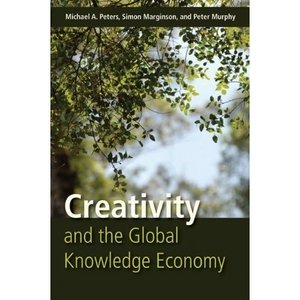Defining knowledge capitalism
Murphy, Peter (2009) Defining knowledge capitalism. In: Peters, Michael A., Marginson, Simon, and Murphy, Peter, (eds.) Creativity and the Global Knowledge Economy. Peter Lang, New York, USA, pp. 23-50.
![[img]](https://researchonline.jcu.edu.au/23738/1.hassmallThumbnailVersion/23738_Peters_2009_Book_Cover.jpg)
|
Image (JPEG) (Book Cover)
- Cover Image
Download (50kB) |
|
|
PDF (Published Version)
- Published Version
Restricted to Repository staff only |
Abstract
[Extract] For centuries people have invested, traded, policed, warred, worked and communicated over huge distances. The modern shareholder corporation was devised to achieve this. The Dutch created the equity corporation-epitomized by the East India Company-to fund a quasi-permanent network of fortified sea-trading posts that spread across half of the globe (Parry, 1963). These were the first network organizations in the modern sense. The popularity of the corporation farm grew rapidly in the United States from the middle of the nineteenth century onwards. It proved effective for doing business on what was becoming a continental scale-as the American Union expanded westward. The shareholder corporation was eminently suited to the building of railroads. This was a project that had similar needs to global trading companies, namely the large capitalization of a network infrastructure (in this case, rails and stations) and the staffing of offices spread across a geographically expansive network. In figuring out how to exercise 'control at a distance', the railroads created the fundamentals of the American corporate management style (Chandler, 1990).
| Item ID: | 23738 |
|---|---|
| Item Type: | Book Chapter (Research - B1) |
| ISBN: | 978-1-4331-0425-1 |
| Date Deposited: | 09 Nov 2012 02:45 |
| FoR Codes: | 16 STUDIES IN HUMAN SOCIETY > 1608 Sociology > 160806 Social Theory @ 100% |
| SEO Codes: | 97 EXPANDING KNOWLEDGE > 970116 Expanding Knowledge through Studies of Human Society @ 100% |
| Downloads: |
Total: 181 Last 12 Months: 2 |
| More Statistics |



